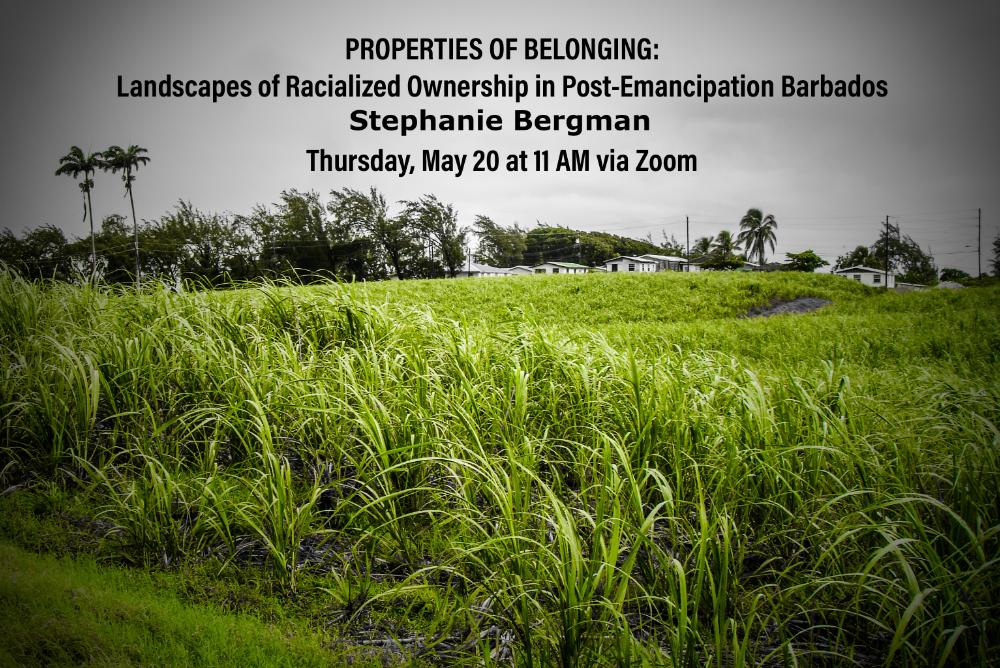W&M Featured Events
[PAST EVENT] Anthropology Final Dissertation Defense: Stephanie Bergman, "Properties of Belonging"
Location
Zoom
Properties of Belonging: Landscapes of Racialized Ownership in Post-Emancipation Barbados
My dissertation research at St. Nicholas Abbey sugar plantation places landscape at the forefront of analysis in order to tell a story of power and conflict over rights and claims to belonging in one of the most profitable British colonies during the era of emancipation. I spent years completing archaeological and ethnohistorical research at this popular national heritage site to learn how the transition from slavery to emancipation occurred on the ground, and to provide a comparative analysis of the tenantry system as it developed locally in the Caribbean region. I conceived the concept of a landscape of racialized ownership to stress the interconnected processes of dispossession and racialization attempted through the enclosure movement, which led to the formation of a landless working class on both sides of the Atlantic.
Specifically, my research considers how colonial property regimes and racial identities were co-constructed in the plantation tenantries of Barbados. Through an archaeological case study at St. Nicholas Abbey, I show that English improvements occurred across the landscape during the late period of slavery, including replacing African-styled settlements with English-styled tenantry structures. These improvements at St. Nicholas Abbey occurred when the creole masters of ‘Little England’ were increasingly marginalized from the Britain metropole, in an attempt to salvage elite White identity. After slavery, plantation tenantries were used to keep laborers tied to estates, with rents for houses and lands forming the basis of coercive labor contracts. During this rapid transition to wage labor, the emancipated often lost customary rights to houses and provision grounds located on plantation lands as evictions became common, which threatened to break apart well-established kinship networks. As a result, plantation tenants drew on an informal system of public display and social acknowledgment to achieve home ownership. These material practices allowed families to stay together after emancipation resulting in a local architectural style referred to as the “chattel house” --which I show operates in a fashion similar to the African Caribbean cultural institution known as family land.
My analysis of the tenantry system and enduring chattel house shows how the cultural terms of belonging are historically interwoven with property relations. Property, and how it is culturally constructed, is almost entirely absent in scholarly studies of people that were at best considered victims in colonial property regimes. I argue that archaeologists can, and indeed should, analyze property ownership by African Diasporans with anthropological and Africanist centered approaches to expose how racial identities and property rights continue to operate in the present-day.
Please email Joni Carlson [[jdcarlson]] for the Zoom link.
Contact
[[jdcarlson]]
